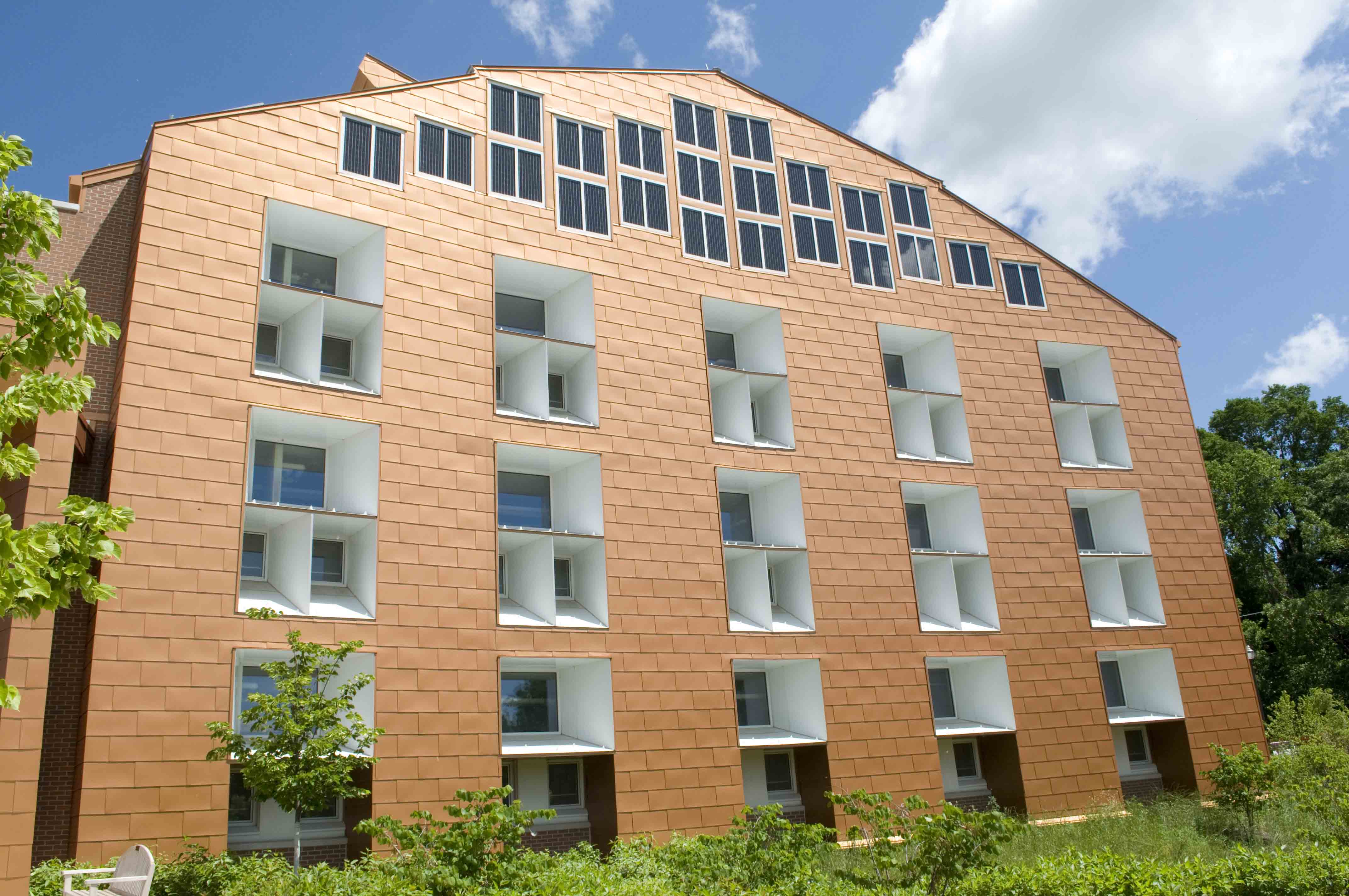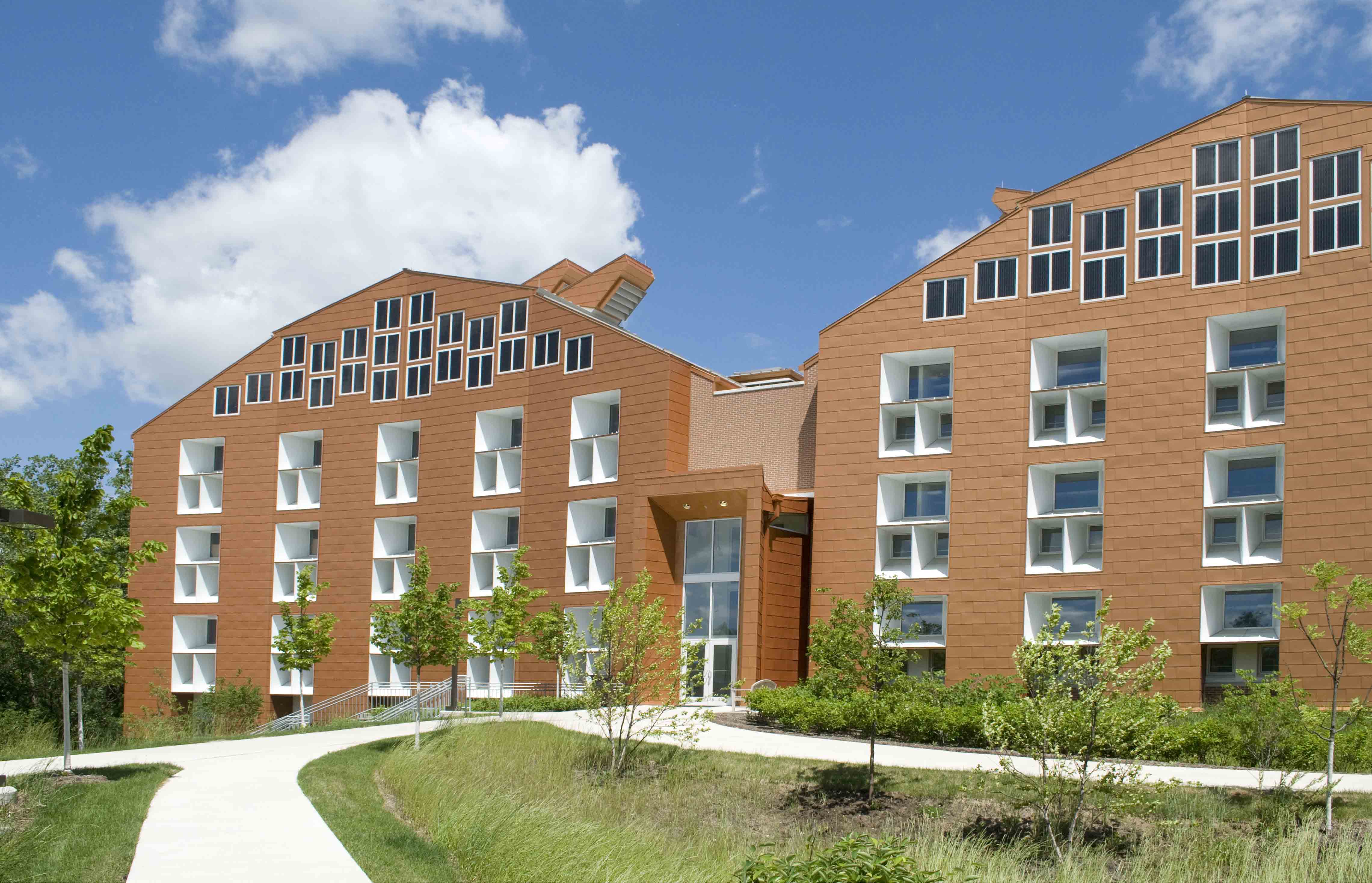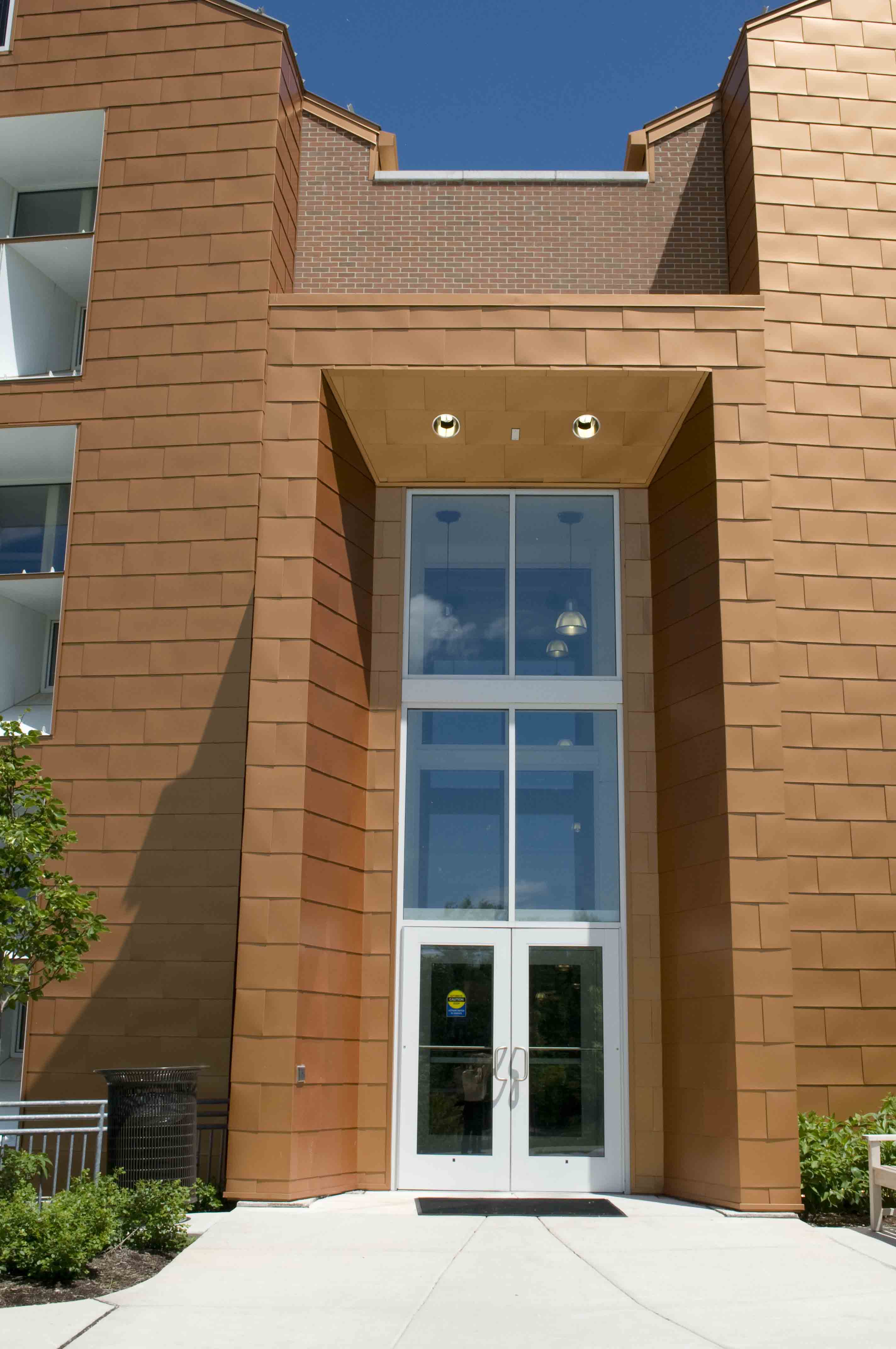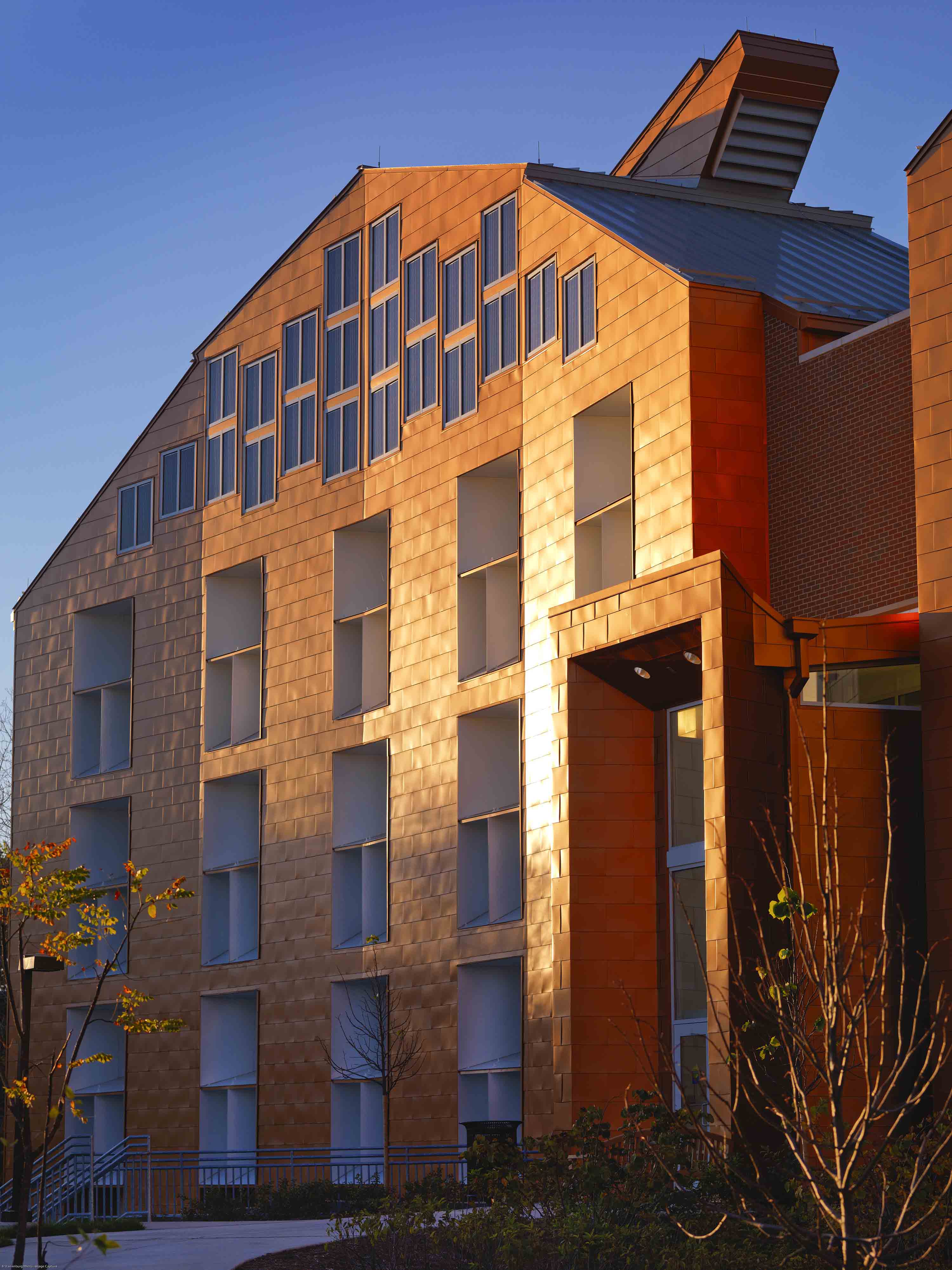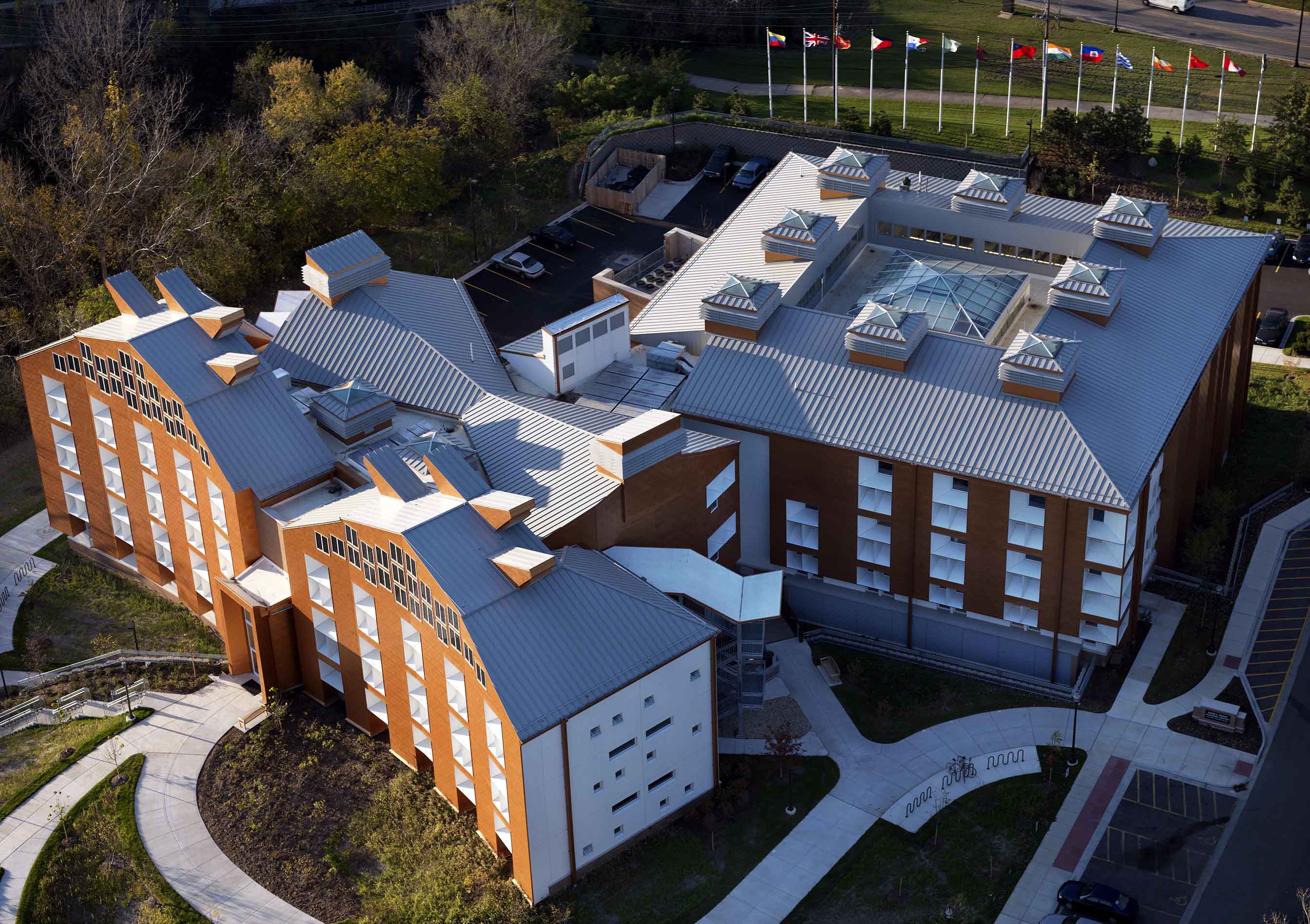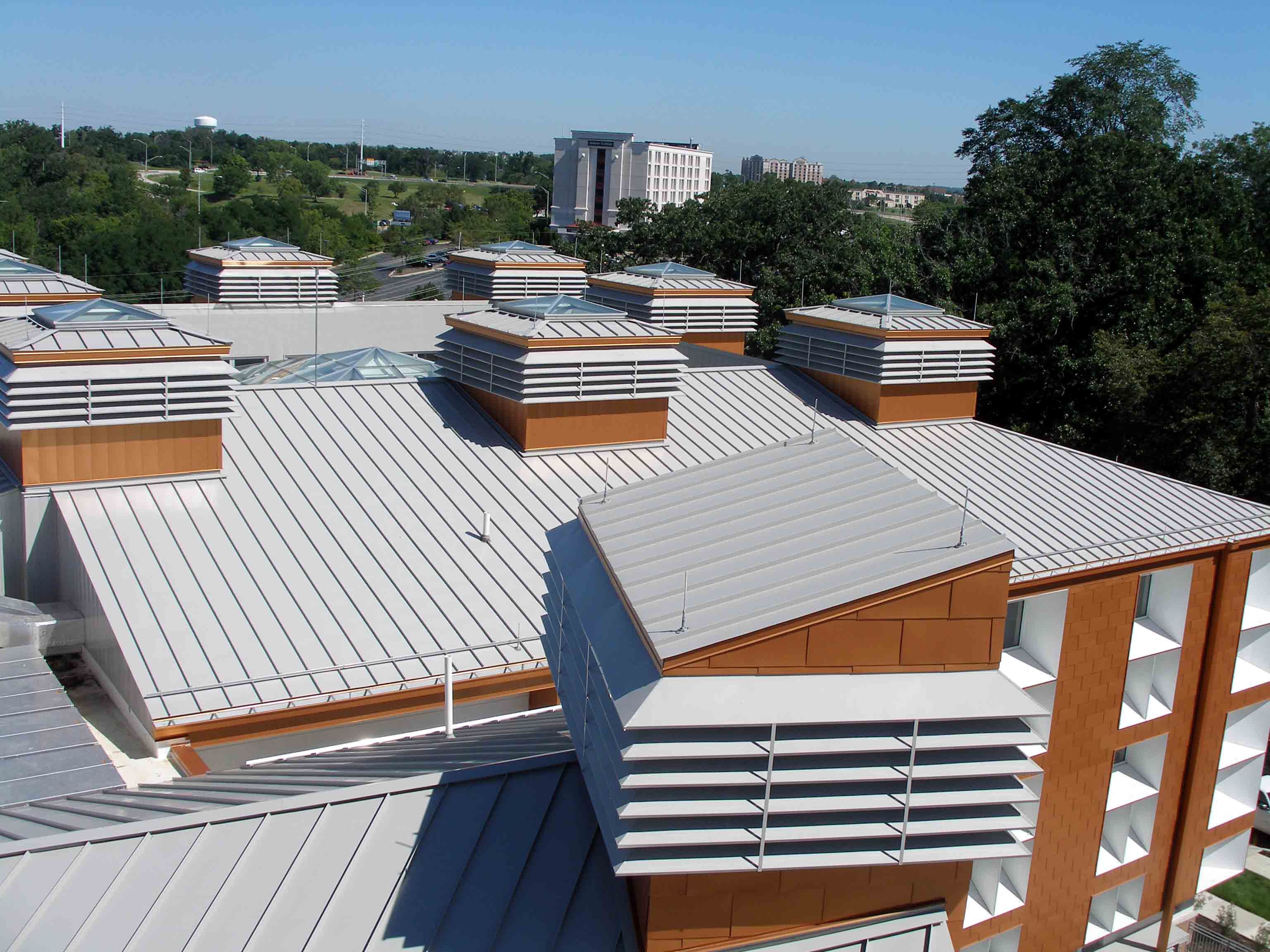Judson University in Elgin, Ill., recently experienced some enviable challenges: continuous growth in its fledging architectural and design program had led to less classroom, meeting and office space, and the university had also outgrown its current library.
School officials came together and concluded that a new facility was needed, with one major priority—the building had to be as sustainable as possible. Judson conducted an outside competition to select the best design to meet its specifications. In doing so, the university was able to solve its unique design challenges and give its architecture students the opportunity to witness a new project from start to finish, right on campus.
Short & Associates of London was selected as the winning architect for its unique metal roof and wall panel design capabilities, its experience in reducing solar consumption and emissions, and its expertise in utilizing natural ventilation systems to increase sustainability. To create the building’s custom-fabricated wall panels and overall exterior design, Short & Associates selected Wiesbrook Sheet Metal (Elgin, Ill.) to collaborate with metal wall panel manufacturer McElroy Metal (Shreveport, La.).
Because using true copper panels for the project would have posed the risk of theft and would have increased project costs, McElroy Metal provided over 104,000 sf of 4’ x 10’ flat metal sheets with Valspar’s signature Fluropon Copper Penny coating for the wall and trim, as well as over 24,700 sf of Medallion-Lok roof panels with Valspar’s Fluropon Ash Gray coating. Valspar’s Fluropon coatings were selected not only for their durability and gloss retention, but for their high solar reflectivity and emissivity. The coatings played a key role in creating a cool metal roof, reducing the building’s energy consumption and heat island effect.
In addition to the cool metal roof, other sustainability features of the new building include exterior walls that sit four feet from the concrete structure to utilize the natural tendency of warm air to rise, creating a vacuum that draws cool air in from the bottom, circulates it and exhausts it through rooftop ventilators.
A basic mechanical heating and cooling system provides essential temperature control during the months when the natural mode isn’t possible. The building also features an integrated photovoltaic system to generate electricity, as well as landscape features that provide storm water control and increased biodiversity.
The completed four-story, 88,000-sf building is divided to serve three functions, with classroom space, academic offices/studios, and the library wing. The building areas are joined together by a bowtie-shaped link that is designed to provide additional classroom space and a gallery.
The project required six months from the mock-up until the actual installation of the Valspar Fluropon-coated wall and roof panels began, and 15 months for completion. The final result was the first truly “green” college building in the United States—achieving a Gold LEED Rating by the U.S. Green Building Council.
For more information on Valspar, visit www.valsparcoilextrusion.com.
Related Stories
Museums | Aug 11, 2010
Design guidelines for museums, archives, and art storage facilities
This column diagnoses the three most common moisture challenges with museums, archives, and art storage facilities and provides design guidance on how to avoid them.
| Aug 11, 2010
Broadway-style theater headed to Kentucky
One of Kentucky's largest performing arts venues should open in 2011—that's when construction is expected to wrap up on Eastern Kentucky University's Business & Technology Center for Performing Arts. The 93,000-sf Broadway-caliber theater will seat 2,000 audience members and have a 60×24-foot stage proscenium and a fly loft.
| Aug 11, 2010
Citizenship building in Texas targets LEED Silver
The Department of Homeland Security's new U.S. Citizenship and Immigration Services facility in Irving, Texas, was designed by 4240 Architecture and developed by JDL Castle Corporation. The focal point of the two-story, 56,000-sf building is the double-height, glass-walled Ceremony Room where new citizens take the oath.
| Aug 11, 2010
Carpenters' union helping build its own headquarters
The New England Regional Council of Carpenters headquarters in Dorchester, Mass., is taking shape within a 1940s industrial building. The Building Team of ADD Inc., RDK Engineers, Suffolk Construction, and the carpenters' Joint Apprenticeship Training Committee, is giving the old facility a modern makeover by converting the existing two-story structure into a three-story, 75,000-sf, LEED-certif...
| Aug 11, 2010
Utah research facility reflects Native American architecture
A $130 million research facility is being built at University of Utah's Salt Lake City campus. The James L. Sorenson Molecular Biotechnology Building—a USTAR Innovation Center—is being designed by the Atlanta office of Lord Aeck & Sargent, in association with Salt-Lake City-based Architectural Nexus.
| Aug 11, 2010
San Bernardino health center doubles in size
Temecula, Calif.-based EDGE was awarded the contract for California State University San Bernardino's health center renovation and expansion. The two-phase, $4 million project was designed by RSK Associates, San Francisco, and includes an 11,000-sf, tilt-up concrete expansion—which doubles the size of the facility—and site and infrastructure work.
| Aug 11, 2010
Goettsch Partners wins design competition for Soochow Securities HQ in China
Chicago-based Goettsch Partners has been selected to design the Soochow Securities Headquarters, the new office and stock exchange building for Soochow Securities Co. Ltd. The 21-story, 441,300-sf project includes 344,400 sf of office space, an 86,100-sf stock exchange, classrooms, and underground parking.
| Aug 11, 2010
New hospital expands Idaho healthcare options
Ascension Group Architects, Arlington, Texas, is designing a $150 million replacement hospital for Portneuf Medical Center in Pocatello, Idaho. An existing facility will be renovated as part of the project. The new six-story, 320-000-sf complex will house 187 beds, along with an intensive care unit, a cardiovascular care unit, pediatrics, psychiatry, surgical suites, rehabilitation clinic, and ...
| Aug 11, 2010
Colonnade fixes setback problem in Brooklyn condo project
The New York firm Scarano Architects was brought in by the developers of Olive Park condominiums in the Williamsburg section of Brooklyn to bring the facility up to code after frame out was completed. The architects designed colonnades along the building's perimeter to create the 15-foot setback required by the New York City Planning Commission.


